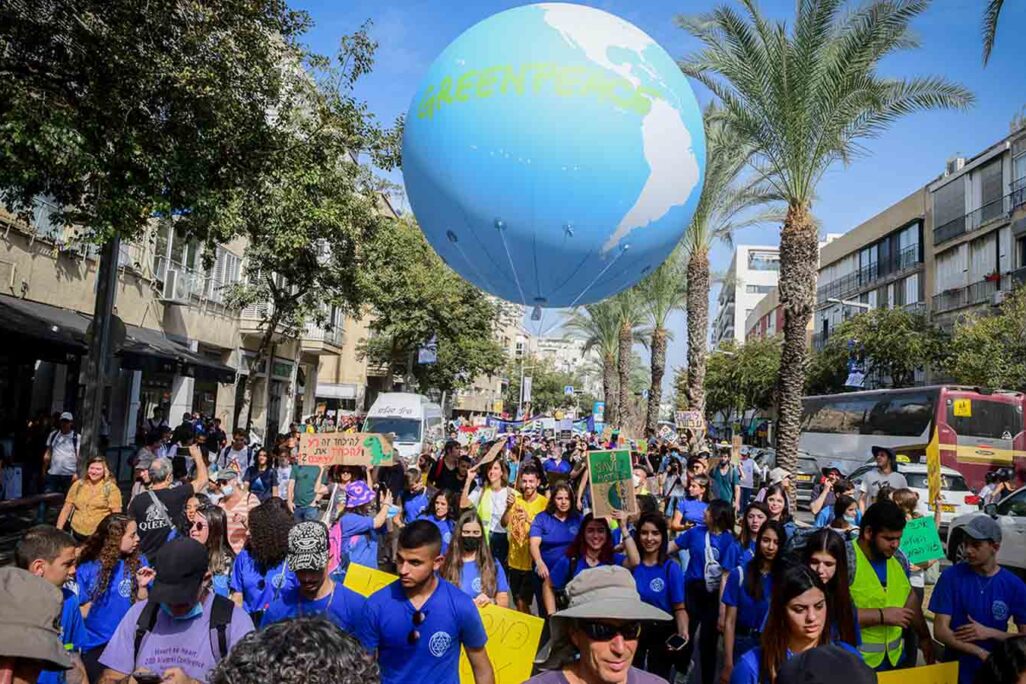
In the largest environmental protest ever held in Israel,12,000 people participated in the Climate March in Tel Aviv this past Friday, calling for more meaningful concrete steps against climate change. These calls came in light of Israel’s new commitment to reduce its carbon emissions to zero by the year 2050, ahead of the United Nations COP 26 Climate Talks currently taking place in Glasgow.
“It is exciting to see the public waking up, beginning to realize that the climate crisis is the biggest security threat to us and to the entire world. We are protesting, but in fact we are fighting for our own existence and for our children’s existence,” said Elad Hochman, executive director of Green Course, one of Israel’s largest environmental groups and among the leaders of the march.
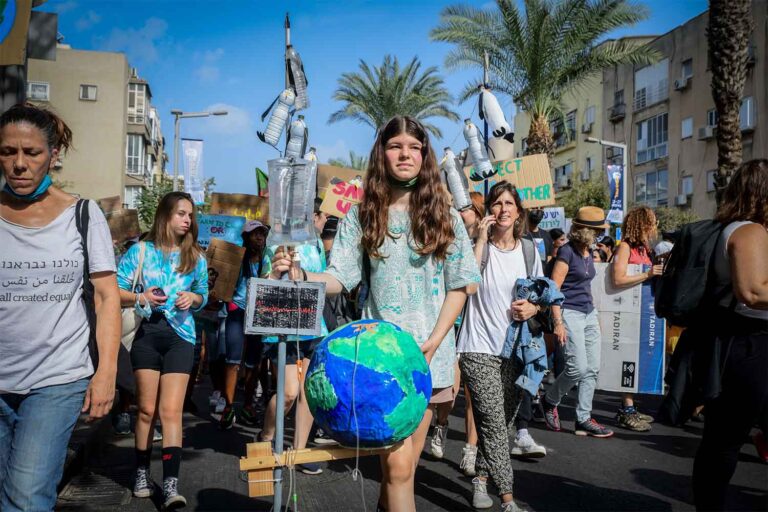
The march, which included educational events and exhibits, was held at Rabin Square and saw a record attendance level after last year’s rally was cancelled due to the pandemic. The event was organized by Youth Protest for the Climate, Parents for Climate, the National Union of Israeli Students, Green Course, the Society for the Protection of Nature, and various youth movements.
Commitment to zero carbon emissions
Israel’s government has committed to many of the protester’s demands, but activists fear that the necessary follow-through may be lacking. Prime Minister Naftali Bennett and Energy Minister Karine Elharrar made a joint announcement last Thursday that Israel will reach zero carbon emissions by 2050.
Zandberg welcomed the decision, and also drew her attention to the “100 Steps” program she has proposed, an extensive plan to transition Israel into a dramatically lower carbon output.
“We will further deepen the goals in [the program] to express and anchor Israel’s commitment,” Zandberg said, renewing her goal of passing the plan in law upon her return from the conference.
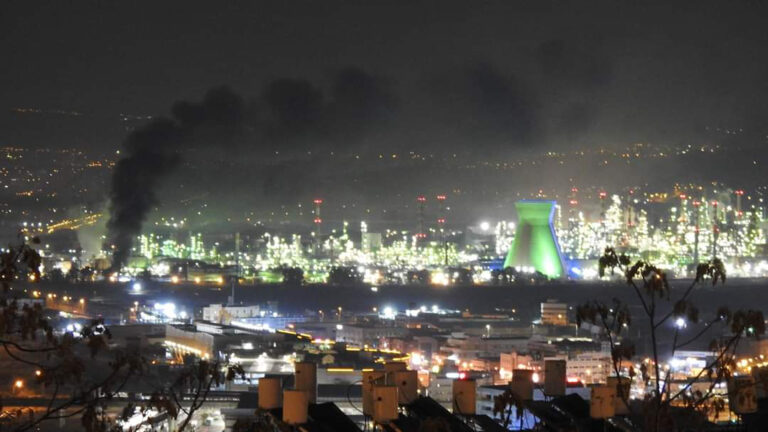
In recent months, extensive work has been carried out with the aim of formulating an action plan for reaching the zero emissions target by 2050, which the government decided on internally last July.
Researchers used different technologies to model and examine two thousand scenarios, with a focus on forecasts for energy consumption and different options for the development of the electricity grid. Reaching the goal of zero emissions will require all sectors of the economy to take a wide range of measures to reduce their carbon output.
“I am confident that a massive investment in innovation, changing energy consumption habits, and removing barriers to the promotion of renewable energy will succeed in bringing us to zero greenhouse gas emissions by 2050,” Energy Minister Elharrar said.
Most of the world’s developed countries, which are responsible for about 70% of the world’s carbon emissions, have already announced that they will reach zero greenhouse gas emissions by 2050.
This step by Israel is a direct continuation of the climate package approved by the government a few weeks ago, in which precedent-setting decisions were made regarding the treatment of the climate crisis.
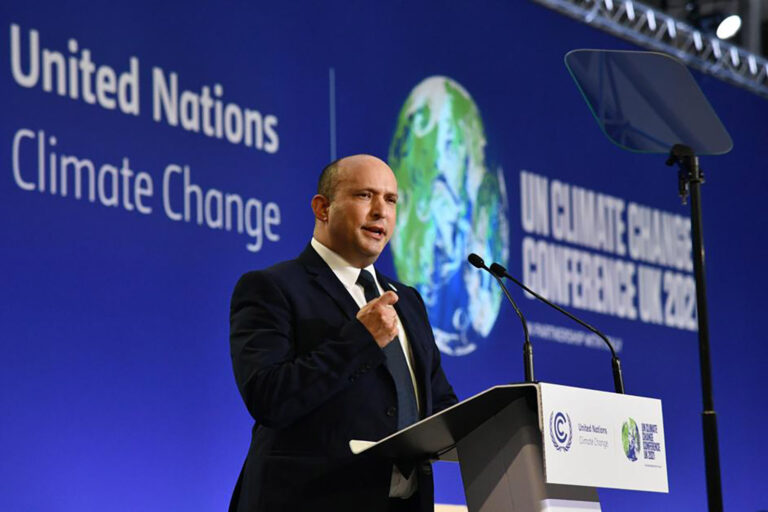
“With the new goal, Israel stands together with the developed countries of the world that are already working to achieve the goal of zero emissions, and reaffirms its commitment to the Paris Accords and international agreements on the subject. We are mobilizing for the global challenge, producing technological solutions, and striving to achieve this important goal,” Prime Minister Bennet said.
Israel depends on technological developments, but does not invest in them
Israel’s ability to meet this target requires significant technological development. Many of the required technologies are still in early stages or do not exist at all, such as methods for capturing and fixing carbon from the air, or cheap and clean production of hydrogen as a non-polluting fuel.
But even in the field of research and development, Israeli investment hardly touches these areas. Every year, the Ministry of Energy allocates grants to “pioneer facilities,” or pilot programs, in the areas of energy saving and clean energy, but the amounts devoted to this are not high.
Beyond that, even the proven technologies of the green construction standard and roofing in solar panels are not required for any new construction in Israel. There is also no detailed plan for preparing for climate change-related damage on existing buildings, an expensive and less cost-effective procedure, but vital and life-saving in itself.
Many statements, not enough actions
Until now, Israel’s climate goals have been backed up only by government decisions, many of which have not been implemented. A draft climate bill is currently in the stage of internal dialogue between government ministries, but full agreement has not yet been reached on its details.
The proposal does not have a target of achieving zero carbon emissions, but of reducing only 85% of emissions. Due to disagreement among various government ministries, most significantly the Finance and Energy Ministry, over sections of the law, the proposal was removed from the agenda of the government meeting designated for its discussion.
The government body focused on climate change preparedness was established in 2018, but the Ministry of Finance has refused to finance 48 of the 50 necessary projects that it has proposed to increase preparedness.
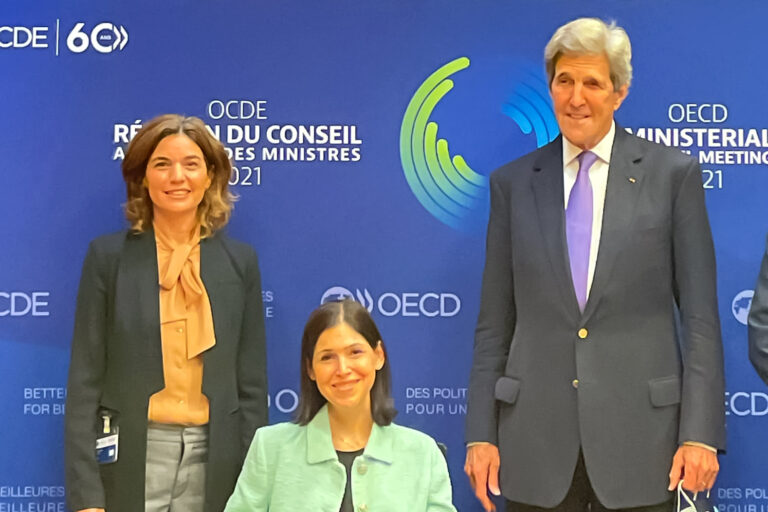
In order to make the declarations binding, it is necessary not only to pass them as laws but also to set clear intermediate targets and binding mechanisms for scenarios of compliance and non-compliance with scalable milestones, on the way to reducing and eventually eliminating emissions.
The Ministry of Environmental Protection claims that government ministries have recently become more willing to cooperate in preparing for climate change.
But as of yet, this increasingly cooperative atmosphere is still expressed through declarations and plans rather than practical steps forward.
Consistent environmental underachieving
While Israel is a global technology leader in areas such as water and contributes significantly to innovation in financial and transportation issues, it lags behind in adopting green solutions in energy, waste, and environment issues.
Israel has consistently failed to meet its goals for energy efficiency. Many new government projects to increase energy efficiency are in the works, but they are mostly being funded by reallocating an existing budget rather than increased investment.
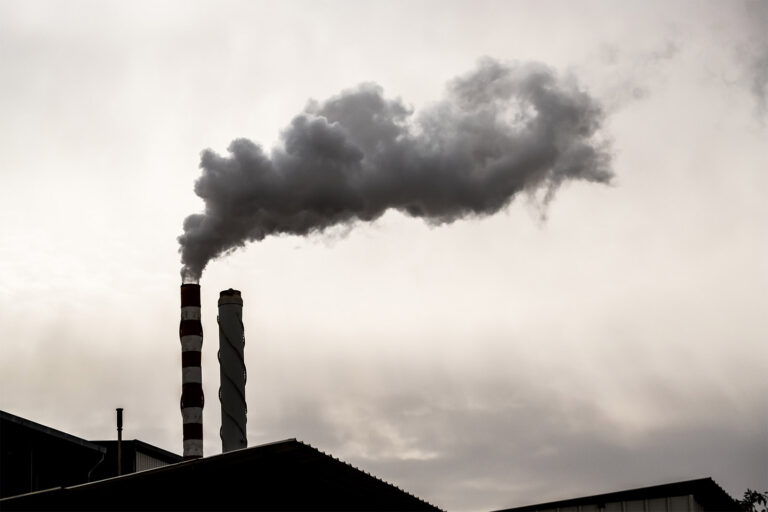
Israel missed its own 2020 target for the integration of renewable energies. The target was set at renewables making up 10% of Israel’s electricity, but Israel achieved integration of renewable energies at only 6%. The current expectation is that the 10% target will be crossed only in 2022.
Israel’s State Comptroller recently published a comprehensive report which exposed the lack of serious preparations for Israel's climate crisis. The government’s slow response is especially problematic given that the Middle East is expected to experience twice as much warming as the world’s average.






